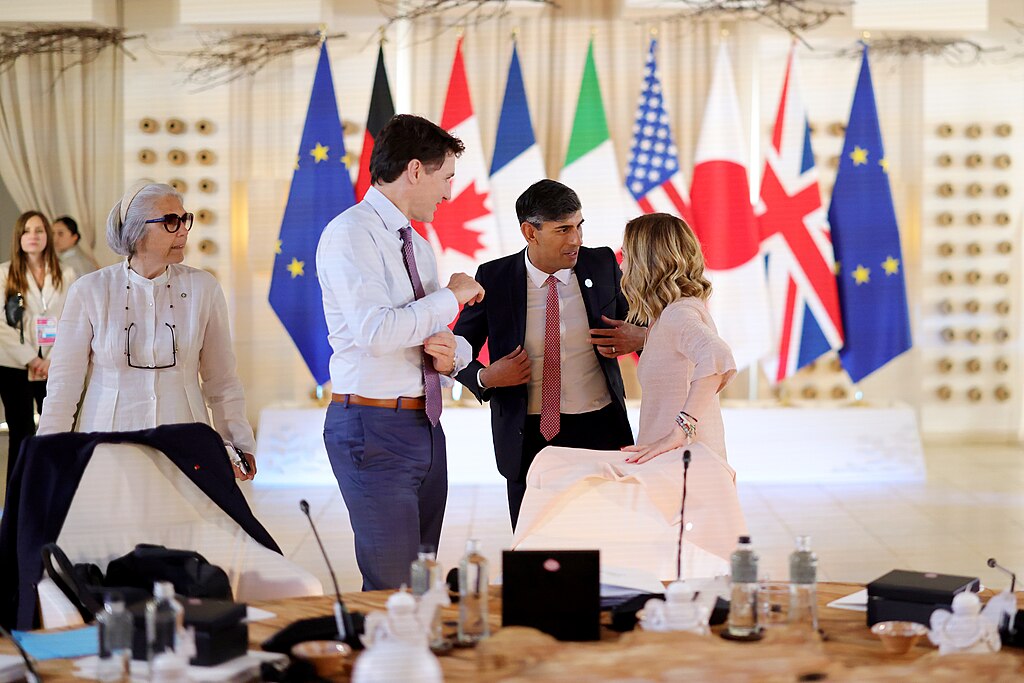The foreign ministers of G7 nations gathered near Rome on Monday to tackle escalating global crises, including conflicts in the Middle East and Ukraine. With pressing diplomatic and legal challenges, the meeting marked a pivotal moment as the international community struggles to address widespread violence and uncertainty.
Middle East Ceasefire Hangs in the Balance
A potential ceasefire agreement between Israel and Hezbollah dominated discussions, with Israeli officials indicating that a deal might be imminent. Mike Herzog, Israel's ambassador to the U.S., suggested a resolution could be reached "within days," raising hopes for a breakthrough in the region’s ongoing turmoil.
Ministers from Saudi Arabia, Egypt, Jordan, and representatives from the Arab League also joined the talks, amplifying diplomatic efforts. Jordanian Foreign Minister Ayman Safadi called for an immediate and permanent ceasefire, emphasizing the need to stop the bloodshed and begin rebuilding. Similarly, Egypt’s Foreign Minister Badr Abdelatty announced plans to host a ministerial conference to rally international aid for Gaza, highlighting the humanitarian urgency.
The International Criminal Court’s (ICC) recent arrest warrants for Israeli Prime Minister Benjamin Netanyahu and other senior officials further complicated the situation. Italian Foreign Minister Antonio Tajani, while expressing support for the ICC, urged G7 members to unite on international law and avoid further fracturing global diplomacy.
Ukraine Crisis Remains a Key Focus
Even as the Middle East captured significant attention, the war in Ukraine remained central to G7 discussions. Russian aggression has intensified, with Moscow launching hypersonic missile strikes in retaliation for Ukraine’s use of U.S. and British long-range weapons. These developments have deepened concerns about global security.
British Foreign Secretary David Lammy reaffirmed G7 support for Ukraine, unveiling new sanctions targeting Russia’s covert oil export network. "We are confident Ukraine will have the funds and military equipment to sustain its defense through 2025," Lammy stated, underscoring the group’s commitment to Kyiv’s military and economic resilience.
However, with the imminent transition to President-elect Donald Trump’s administration, uncertainties loom over the U.S.'s stance on Ukraine. Trump has previously criticized aid to Ukraine and pledged to end the war within 24 hours, raising concerns among G7 allies about a potential shift in American foreign policy.
Global Challenges Highlighted Amid Diplomatic Efforts
The meeting coincided with the International Day for the Elimination of Violence Against Women, emphasizing the G7’s commitment to addressing gender-based violence. Ministers participated in events spotlighting this crisis, which has claimed nearly 100 lives in Italy this year, according to a recent Eures think tank report.
As the G7 faces mounting challenges, the outcomes of this meeting could shape global diplomacy for years to come. With critical issues on the table and leadership transitions underway, the stakes have never been higher.



 U.S.-Iran Nuclear Talks Show Progress but No Breakthrough Amid Rising Military Tensions
U.S.-Iran Nuclear Talks Show Progress but No Breakthrough Amid Rising Military Tensions  Argentina Senate Approves Bill to Lower Age of Criminal Responsibility to 14
Argentina Senate Approves Bill to Lower Age of Criminal Responsibility to 14  Trump Warns Iran as Gulf Conflict Disrupts Oil Markets and Global Trade
Trump Warns Iran as Gulf Conflict Disrupts Oil Markets and Global Trade  USITC to Review Impact of Revoking China’s PNTR Status, Potentially Raising Tariffs on Chinese Imports
USITC to Review Impact of Revoking China’s PNTR Status, Potentially Raising Tariffs on Chinese Imports  Denver Mayor Orders Police to Protect Protesters, Restricts ICE Access to City Property
Denver Mayor Orders Police to Protect Protesters, Restricts ICE Access to City Property  HHS Adds New Members to Vaccine Advisory Panel Amid Legal and Market Uncertainty
HHS Adds New Members to Vaccine Advisory Panel Amid Legal and Market Uncertainty  Israel Launches Fresh Strikes on Iran After Death of Supreme Leader Ayatollah Khamenei
Israel Launches Fresh Strikes on Iran After Death of Supreme Leader Ayatollah Khamenei  Israel Declares State of Emergency as Iran Launches Missile Attacks
Israel Declares State of Emergency as Iran Launches Missile Attacks  Pentagon to Halt Ivy League Programs for U.S. Military Officers Starting 2026
Pentagon to Halt Ivy League Programs for U.S. Military Officers Starting 2026  Venezuela Oil Exports to Reach $2 Billion Under U.S.-Led Supply Agreement
Venezuela Oil Exports to Reach $2 Billion Under U.S.-Led Supply Agreement  U.S.-Israel Strike on Iran Escalates Middle East Conflict, Trump Claims Khamenei Killed
U.S.-Israel Strike on Iran Escalates Middle East Conflict, Trump Claims Khamenei Killed  Trump Media Weighs Truth Social Spin-Off Amid $6B Fusion Energy Pivot
Trump Media Weighs Truth Social Spin-Off Amid $6B Fusion Energy Pivot  Australian PM Calls Alleged Western Australia Terror Plot “Deeply Shocking” After Arrest
Australian PM Calls Alleged Western Australia Terror Plot “Deeply Shocking” After Arrest  Trump Launches Operation Epic Fury: U.S. Strikes on Iran Mark High-Risk Shift in Middle East
Trump Launches Operation Epic Fury: U.S. Strikes on Iran Mark High-Risk Shift in Middle East  Pentagon Leaders Monitor U.S. Iran Operation from Mar-a-Lago
Pentagon Leaders Monitor U.S. Iran Operation from Mar-a-Lago  Macron Urges Emergency UN Security Council Meeting as US-Israel Strikes on Iran Escalate Middle East Tensions
Macron Urges Emergency UN Security Council Meeting as US-Israel Strikes on Iran Escalate Middle East Tensions  ICE Hiring Surge Raises Vetting Concerns Amid Rapid Expansion
ICE Hiring Surge Raises Vetting Concerns Amid Rapid Expansion 































